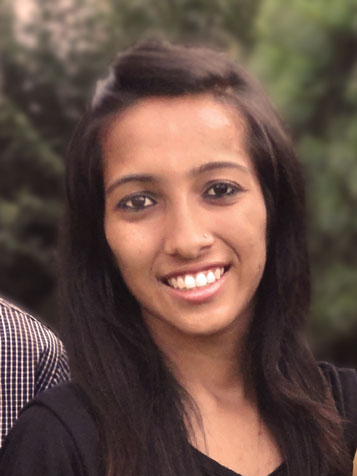I should say up front that this post is aimed at men. When it comes to fighting human trafficking, those of us on the front-lines of this battle tend to look beside us and see mostly women. When you add the fact that many, but not all perpetrators, especially of domestic minor sex trafficking (DMST) are males, it becomes painfully clear that we need strong and compassionate men to join the efforts to end this atrocity.
With that said, I promise that this will not be a “male bashing”post. As an African-American male, I don’t want to add to the guilt that many feel. To the contrary, my intention is simply this: to move you to action. And perhaps the best way to do that is to share why I got involved.
I have been married to my beautiful and loving wife for 16 years. In that time, I have been blessed to be Daddy to two amazing daughters. Yes, three women govern my personal life! I have learned to enjoy mall hopping, learning the newest pop sensations, and I have enough rainbow loom bracelets to stretch across all the Peachtree Streets in Atlanta.
Perhaps one of the biggest adaptations I’ve made as a father was understanding inequalities that still exist for women. The looks my oldest would receive as one of a few girls at basketball camp. The bullying my youngest dealt with as the smartest in her class. Many times the thought would enter my mind – “Would they go through this if they were boys?” As a dad, my job was to protect and that’s what I planned to do until they were grown and married.
And so as a protector, when I began to learn that modern-day slavery still existed around the world, I was shocked. I was even more shocked to learn that it happened in many forms, one of which was DMST and my own home of Atlanta had developed a reputation across the world of being a hub for the sex trafficking of minors. In fact, in 2005, the FBI named Atlanta as one of 14 cities in the nation with the highest incidence of children used in prostitution. As men, many times our natural reaction to this is to get angry, and then once football or some other distraction comes into our world, that anger subsides. For me, the anger just stewed. And I knew I had to do something.
My first course of action was to learn more. And as I learned more, I realized that this was no light issue. In my home state of Georgia, the average age of girls exploited sexually is 12-14. In 2009, each month, 7,200 men were paying for 8,700 sex acts with children in Georgia. After learning this information, there was no way that I could ignore what was happening in my own community. As Edmund Burke said “The only thing necessary for evil to triumph is for good men to do nothing.” How could I consider myself a good man and a good father if I were to turn my head away from what was happening in my community?
And as a father, this meant that, at the appropriate time, I needed to begin educating my family. Starting with my wife and then my daughters. Something as simple having a conversation about “what are girls and boys like at your school,” can be an eye-opening dialogue to have with your children.
Once I became educated, I needed to find a place to fit in. How could I get engaged with this issue? I did not have extra time to just add hours to my already packed schedule, nor did I want to do the community service equivalent of bucket plunking in church. I wanted to add value to this cause. As learning professional that meant applying my experience and skills to the training that was being done by Street Grace, the organization that introduced me to this issue. For others that have partnered with us, their contribution has also related to their expertise. There is so much to be done, that there’s a place and role for everyone. What will yours be?
As I began to serve, seeing the lights go on in the eyes of others was encouraging. I knew that the way I was serving was making a difference and I began freely giving more and more of my time to Street Grace. The empowerment that was happening around me was exciting and it lead me to believe that within my lifetime, I could see this horror ended.
Fast-forward four years to 2014. I had the privilege of serving on the Street Grace Board of Directors for three years. I now continue to serve as a member of the CEO’s Advisory Board. I have traveled around the country speaking about the ills of DMST and human trafficking. All of this because I decided not to let a Falcons game quench the discomfort that was growing within me around this issue.
So what will your story be? As the 19th Century English abolitionist William Wilberforce said, “You may choose to look the other way, but you can never again say that you did not know.” So now that YOU know, what will YOU do?
Action Steps:
1. Get educated. Participate in a Chosen small group study or find training about DMST
2. Talk to the children in your life. Simply learning about what these children are experiencing, challenged with or doing can be valuable information in this fight.
3. Give. Your time and your finances, make a contribution to a local community-based organization that is fighting this issue.
4. Mentor. If you don’t mentor the children in our communities, the pimps, dealers and other negative members of society will.
5. Spread the word. Tell others about this atrocity, encouraging them to get involved in this fight.
Learn more about Aaronde’s work at Street Grace and the Fathers Against Child Exploitation (FACE).
 My name is Manisha Sunuwar. I am 20 years old. Asha Nepal has been my home since I was 7.
My name is Manisha Sunuwar. I am 20 years old. Asha Nepal has been my home since I was 7.


 My name is Pooja Ghimire. I’m 21. I’ve been living at Asha Nepal since I was 8.
My name is Pooja Ghimire. I’m 21. I’ve been living at Asha Nepal since I was 8.






